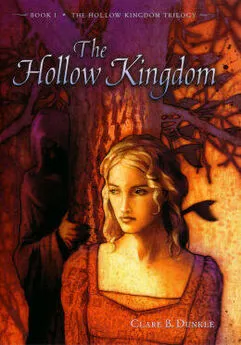Dewey Lambdin - The King
- Название:The King
- Автор:
- Жанр:
- Издательство:неизвестно
- Год:неизвестен
- ISBN:нет данных
- Рейтинг:
- Избранное:Добавить в избранное
-
Отзывы:
-
Ваша оценка:
Dewey Lambdin - The King краткое содержание
Fresh from war in the Americas, young navy veteran Alan Lewrie finds London pure pleasure. Then, at Plymouth he boards the trading ship Telesto, to find out why merchantmen are disappearing in the East Indies. Between the pungent shores of Calcutta and teaming Canton, Lewrie--reunited with his scoundrel father--discovers a young French captain, backed by an armada of Mindanaon pirates, on a plundering rampage. While treaties tie the navy's hands, a King's privateer is free to plunge into the fire and blood of a dirty little war on the high South China Sea.Ladies' man, officer, and rogue, Alan Lewrie is the ultimate man of adventure. In the worthy tradition of Hornblower, Aubrey, and Maturin, his exploits echo with the sounds of crowded ports and the crash of naval warfare.
The King - читать онлайн бесплатно полную версию (весь текст целиком)
Интервал:
Закладка:
"Damme, this feels good!" he declared to the winds and seas.
His first watch ended at four in the afternoon, and he headed below, face and hands raw with the wind and chill, eager for warmth, for a seat near the glowing stove and a glass of something cheerful. But he was delayed from those simple pleasures by the sight of Tom Wythy, their other "owner."
"A word with ye, Mister Lewrie?" the man beckoned. Since Wythy had been pretty much an unseen presence so far, it was more curiosity that led Alan aft to the doorway to the passage that led under the poop to the super-cargo cabins.
"Aye, sir?" Alan replied, and followed the rotund man into his cabin across the passageway from Twigg's. He hoped he'd get some liquid refreshment, at the least.
"Tot o' rum?" Wythy offered once the door was shut. Wythy took up most of the cabin-he was rounder and heavier than even Mr. Brainard the sailing master, his face hidden behind a thick greying beard, and that in an age when most fashionable men shaved closely. There was a red-veined doorknob of a nose, ruddy cheeks round as spring apples and bright, glittering eyes lost in the pudding face the beard most likely concealed.
"I've made some inquiries about yer little excitement," Wythy told him, rubbing the side of that bulbous proboscis with the side of a thumb as thick as a belaying pin. "Took this long t' get even a fast rider t' London an' back. An' I asked about ashore. That's what's kept me busy an' out o' sight so far, so this is our first opportunity to make our acquaintances. Hope ye'll forgive me that."
"Of course, sir," Alan told him. "And what have you found?"
"Oh, we've stirred up an ant-hill, no error." Wythy grinned, baring a rather sparse, but strong set of teeth-those remaining in his head, at least. "Even caught us a French spy or two."
"So it was the French, sir." Alan enthused at the proof of a devilish conspiracy, the rum racing in his veins and warming his chill belly.
"Nothin' t' do with ye, sir," Wythy informed him, turning the broad smile off. "We winkled a brace o' informers out o' the woodpile, but that was more serendipity. Ye've been a bad boy, Mister Lewrie, 'deed ye have. A very bad boy."
"Was it anyone I told, sir?" Alan cringed, waiting for the thunderstorm of rage he imagined would follow.
"I was thinkin' more o' yer taste for married flesh, Mister Lewrie, not yer indiscretion," Wythy said, glaring at him. "Imagine it for a moment. Us expectin' the worst. Word o' our venture leakin' to our foes 'cross the Channel. No end o' shite-storm as our people trace back every man in the know, ye included, t' see if someone's blabbed in his cups'r whispered in the wrong wench's ear."
"But I knew nothing to 'blab' before stepping on board, sir," Alan replied, springing to his own defense out of long-established habit. He'd gotten rather good at it-had to have gotten good at it-since he'd been breeched. "Sir Onsley only said Burgess Chiswick would be going to the Far East on some vital mission but I had no idea I had any part of it until the old fool… until I received my letter from the Admiralty. And I didn't connect my appointment into this ship with him until Chiswick came aboard, either, sir."
"Ah, but yer patron, Sir Onsley could," Wythy hissed evilly. "What's more natural among gentlemen in their clubs'n t' answer an inquiry 'bout where ye are, lad? Under the rose, as it were. Well, let me say, yer former patron. Sir Onsley's stock 'round Whitehall 's not so high anymore. Find another, 's my advice t' ye."
"But…"
"Had ye not been swivin' with another man's wife, he'd not have set henchmen on ye to kill ye," Wythy drummed out, beating Lewrie on the head and shoulders with harsh words. "We'd not have turned all the south of England arsey-varsey lookin' fer spies, not have spent over a thousand pounds o' Crown money to do it, either. Had ye the slightest bit o' sense, ye'd never been caught tuppin' her in the first place!"
"Lord Cantner?" Alan burst out in a near-screech of surprise.
"Aye," Wythy snarled. "Funny what a man'll stand for, long's he don't have t' be confronted direct. Funny the things a man'll stoop to once he is. Two brace o' murderers, one pair t' Wheddon Cross if ye'd gone there. T'other pair ye and yer man did for, all scum from a rookery who smuggled brandy an' lace for your Lord Cantner from the Continent. Seamen, might o' been in league with Frogs who supplied 'em. First pair come t' Plymouth an' nosed about, asking a lot o' questions. Even tried t' sign aboard this ship. Hah, ye didn't know that, did ye, now? Lucky we were a full complement when they did. Couple o' people in the pay o' the French got wind o' it. Began t' wonder what so many Navy hands were doin' signin' aboard Telesto. Never had a clue, 'less ye hadn't stirred up the waters, Mister Lewrie. Well, we stopped their bloody business. Stopped the business o' those hired killers, too. Dead bodies floatin' in a seaport town'r nothin' much t' get exercised about."
"Jesus." Alan gulped at the calmness with which Wythy spoke of having four human beings dispatched. He took a pull on his tot of rum.
"One o' our people had a little chat with yer Lord Cantner as well," Wythy went on. "Pity ye ain't back in London t' console the poor widow. She's become a dev'lish wealthy widow, of a sudden."
"You… you had him killed?" Alan shuddered.
"Expired on his own, damn his blood!" Wythy spat, as though he would have relished throttling the old colt's-tooth. "Right in the middle o' bein' told we had him dead t' rights for attempted murder. An' how vexed the Crown'd be with him. Apoplexy, they say."
"God's teeth!" Lewrie chilled, raising his tot to drain it dry. Well, at least that was behind him. He'd not have to fear any more attempts on his life from Lord Cantner, anyway, though he wasn't sure as to Wythy's or Twigg's intentions. "Hold on, now, sir. You said that you made inquiries. Did you ask of the Chiswick family? Did you pester them? Did you harm them in any way? By God, if…"
"Discreet inquiries, nothin' more," Wythy assured him. "I'm told the lass's prettier'n springtime. Soft on her, are ye? Well, she an' her family weren't run through the Star Chamber. And, ye'll be happy t' know that little servin' wench isn't truly 'an-kled.' My word, but ye're a busy boy, ain't ye, now, Mister Lewrie? But d'ye see just how much trouble that wayward prick o' yer'n has caused us?"
"Aye, sir," Alan replied, as abashed as a first-term student.
"And ye'll not breathe a bloody word more'n 'pass the port' t' anyone, long's yer aboard this ship. Long as this venture lasts, eh?"
"Indeed not, sir," Alan said, meek as a pup.
"And ye'll not go dippin' yer wick 'less I or Zachariah Twigg give ye leave, now, will ye, Mister Lewrie." It was not a question.
"I should think," Lewrie had to grin, getting his spirit back, "that that would not be a problem for the next six months, Mister Wythy."
" T'isn't funny, boy. Ye have need o' swivin' once we're in Calcutta, with our leave, mind ye, ye'll cleave yer tongue t' the roof o' yer mouth," Wythy whispered. " 'Cause if ye can't, if we ever suspect ye of any indiscretion that'd jeopardize this expedition, 'r risk men's lives, then God have mercy on yer miserable soul! Do we understand each other… Mister Lewrie?"
"Aye, sir!" Alan answered quickly, suddenly realizing just how dangerous this mission was. "Indeed we do, sir! I give you my solemn oath we do."
Christ, would these ghouls kill me? Yes, I think they just might! Goddamn me, what sort of a pack of monsters have I been caged up with? These… these blackamoors work for the Crown?
"Good. Ye may go, then. By the way…"
"Yes, Mister Wythy?" Lewrie said, damned eager to get out of the door, but held mesmerized like a bird by a snake.
"Seems that Lord Cantner might o' died happy in one respect," Wythy allowed. "The latest jape runnin' round his circle back in London 's how he finally fathered an heir, and the effort killed him."
"Lady Delia?"
"Bakin' some young buck's bastard, aye," Wythy noted, grinning briefly.
"Seems to be a lot of that going 'round, sir." Alan grimaced. "May I go, sir? Is that all you wish of me for now?"
"Aye, Mister Lewrie, that'll be all," Wythy said, retrieving the glass from Alan's nerveless hand. "And I do mean all!"
II
"The nature of things is in the habit of concealing itself."
– HERACLITUS
Chapter 1
Falconer's Marine Dictionary, by now well-thumbed and stained with tar, proved prophetic on the subject of winds when Alan referred to it. Running down past Portugal, one hundred leagues offshore, they had reveled in the expected nor'east gales, from 28 degrees to 10 degrees north. Then, with winter waning, they met the southerlies south of 10 degrees north, against which they beat hard to make forward progress. And below that latitude, when the winds did indeed come more easterly, they brought gloom and heavy seas in the region known as The Rains, where Telesto was sometimes becaJmed, sometimes boxing the compass in slight, vexing airs to the fourth degree of north. Then had come stronger easterlies, ferocious gales accompanied by chicken-strangling rainstorms and lightning displays worthy of the first portals of Hell to blow them south.
And once round the Cape of Good Hope, it was hard gales, black clouds and rain like buckshot, Telesto shrinking from fifteen hundred tons or so to the burthen of a rowboat, pitching and swooping like an errant water butt. It was sometimes reassuring that Falconer's consoled him in Item the Tenth under Winds that
"Between the fouthern latitudes of 10 and 30 degrees in the Indian Ocean, the general trade wind about the S.E. by S. is found to blow all the year long in the fame manner as in the like latitudes in the Ethiopic ocean; and during the fix months from May to December, thefe winds do reach to within two degrees of the Equator; but during the other fix months, from November to June, a N.W. wind blows in the tract lying between the 3rd and 10th degree of fouthern latitude, in the meridian of the north end of Madagafcar; and between the 2nd and 12th degree of fourth latitude, near the longitude of Sumatra and Java."
Lewrie was a bit leery, though, of the footnote from Robert's Navigation, that "the fwiftnefs of the wind in a great ftorm is not more than 50 to 60 miles in an hour; and a common brifk gale is about 15 miles an hour." He saw winds greater than that daily.
Once far enough north, they found the tract of wind which Falconer mentioned that ran like a racecourse between Madagascar and the African coast, fresh from the south sou'west, which at the Equator changed to the west sou'west.
And then came the Monsoon winds, which at that season of the year, were out of the sou'west in the Gulf of Bengal, none too gentle, either, as the late-year nor'east Monsoons would be. All in all, it was a horrid voyage for the most part. Captain Ayscough lit a fire under everyone's tails, and drove Telesto like Jehu drove his chariot, skating the ragged edge of being overpressed by the winds all the way, beating their way southerly along the coast of Africa below the Equator instead of taking the easier way over toward the Brazilian coast, as most Indiamen did.
Duty, sun sights, baking or boiling in tropic heat, shivering by turns in fear and cold, drenched to the skin in easterly gales and the air and water hot as a mug of "flip," sweltering in tarred tarpaulin foul-weather gear-weary enough to use his fingers to keep his eyes open in the middle watch, which was his by right of being junior-most officer.
Читать дальшеИнтервал:
Закладка:



